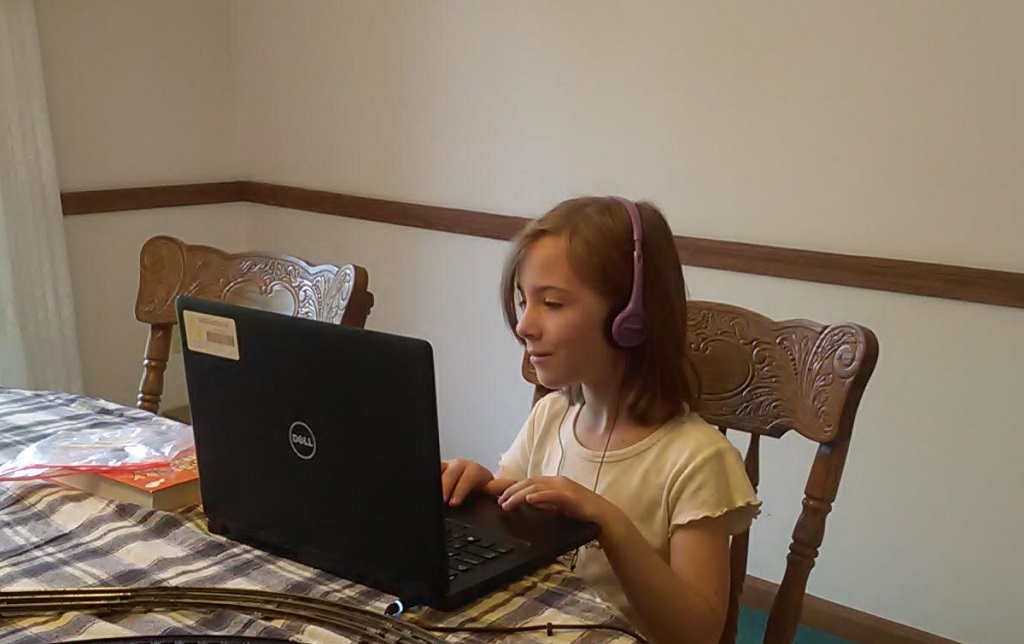It’s back-to-school time — at least for Anya! The local district put off starting school until mid-September in what I assume is an attempt to let other districts see how bad SARS-CoV-2 spreads … but we decided to try Connections Academy instead. It’s a dedicated online school, rather than a few local teachers using a third-party online platform (and going into school was right out). She’s bummed about “missing out” on a month of summer vacation … but August classes in our air conditioned house are a lot more pleasant than classes in the massive concrete block 60’s building with windows that open.
The school sent out info to use https://www.prodigygame.com — a wizard adventure game that Anya absolutely loves (even if casting spells requires solving math problems).
So far, I think Connections Academy are a little unorganized. They’ve got a calendar, but few of the meetings get populated into it. They’re using the first week or two of school for everyone to get themselves sorted — log in, learn the platform, make sure they’ve got their materials. The actual education platform is starting out the same place 1st grade did — using manipulatives to add. The teacher said Anya would take a placement assessment in early September and the education modules would be jumped to whatever is reasonable for the kid based on their assessment. Hopefully!
She’s been going through the educational modules quickly, so I’ve come up with a few experiments. I also signed her up for a Scratch class on Outschool — and I’m thinking about teaching more advanced Scratch classes since none seem to exist … essentially teaching programing concepts like variables — what they are, what scope is, data typing and loosely typed languages, and debugging by watching variable values. She’s really enjoyed the class, and she’s certainly learned to write her own game. We’ve also talked about the scientific method — using spontaneous generation as an example and designing an experiment to prove that mice magically pop out of rotting straw. Which points out something I’ve always liked about science. We’re medieval scientists who want to prove this generally known fact, we design a really good experiment, we meticulously carry out our experiment … and no mice. Even though our experiment failed to prove our hypothesis … we’ve still made an amazing discovery.
